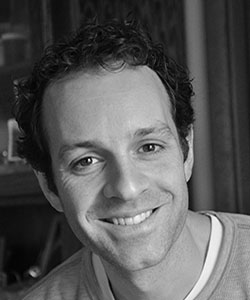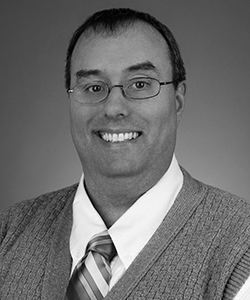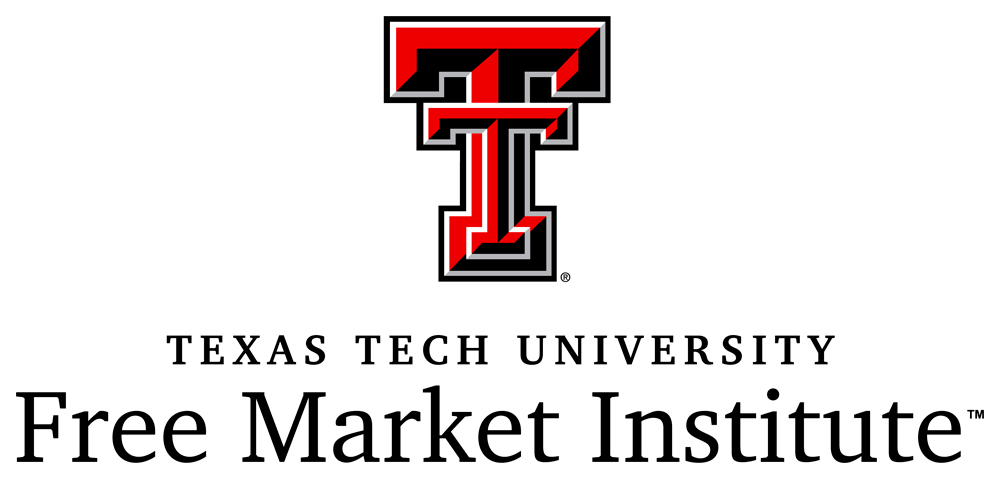Research on the Origins of Economic Freedom and Prosperity
About the Program Invited Research Working Papers
Publications Visiting Scholars Workshop Conference
About the Program
How economic freedom is improved is much less understood than the benefits freedom provides. This research program addresses this major gap in our knowledge. If private property and economic freedom are essential for achieving and maintaining a high standard of living, it is crucial to understand specifically how improvements in these areas have been achieved, and if there are lessons that can be replicated in less free areas of the world or less free U.S. states today.
Scholars have expended much research effort demonstrating the causal links between the exercise of economic freedom in a particular nation or region and the improvement of a multitude of varied measures of human well-being. Unfortunately, what is far less understood are the processes by which the transformation takes place that produces economic freedom, and, eventually, widespread prosperity. This research program aims to remedy this deficiency in understanding of the causes of economic freedom.
The program aims to identify, contextualize and explain — through a series of empirical and qualitative studies — the many and varied market and non-market mechanisms that initiate and perpetuate the social processes that produce a transition to institutions that are more or less supportive of economic freedom.
This research program intends to provide interdisciplinary insight into the problems associated with social change. Although the primary concern involves improving knowledge of how poverty alleviation can be achieved through free market development, understanding what underpins the institutions that protect economic freedoms necessarily involves questions about the role of culture, ideology, law, the moral and spiritual foundations of free enterprise, history, politics, geography and economic conditions.
In this sense, there exists an opportunity to encourage dialogue across a wide variety of disciplines that focuses on the imperatives of improving the human condition in the long run. Rather than a compartmentalized solution to a much broader problem, the program will promote a richer understanding of the institutions that promote human prosperity and, more importantly, how those institutions emerge.
This program provides the foundation for the Free Market Institute's (FMI) collaborative research efforts. It promotes the professional and scholarly development of graduate student research assistants and provides unique collaborative opportunities for Texas Tech University (TTU) faculty and students with visiting research scholars. Project participants produce research papers, visiting researchers deliver frequent guest lectures and working research presentations and stay on campus for extended research visits, and Ph.D. students research the topic as assistants to FMI faculty and for their own dissertations.
Please continue reading to review invited research, working papers, publications, featured visiting scholars, research workshop presentations and other news associated with the program.
Invited Research
This research program provides support to FMI faculty and staff, other scholars at TTU, and scholars at other academic institutions and public policy organizations to develop research projects that will contribute to the output of the overall program.
-
- Institutional Determinants of Moral Beliefs: The Relationships between Property Rights and Morality — Summer 2015 — Bruce Benson, DeVoe Moore Professor of Economics at Florida State University (retired)
- The Origins of Political and Economic Power: Group Formation and Institutional Evolution — Summer 2015 — Randall Holcombe, DeVoe Moore Professor of Economics at Florida State University
- The Relationship between Business Interests and Economic Freedom: The 1856 San Francisco Businessman's Revolution — Summer 2015 — Edward Stringham, Davis Professor for Economic Organizations and Innovation at Trinity College
- The Law and Economics of Northern Barbarians — Summer 2015 — Andrew Young, Associate Professor of Economics at West Virginia University
Working Papers
FMI faculty and staff, other scholars at TTU, and scholars at other academic institutions and public policy organizations are developing working research projects that will contribute to the output of the research program. Please do not cite the papers linked below without prior permission from the authors.
-
- Aggregate Demand Shortfalls and Economic Institutions — Taylor Smith, Research Assistant, Free Market Institute at Texas Tech University (co-authored with Ryan Murphy, Research Assistant Professor, O'Neil Center for Global Markets and Freedom at Southern Methodist University)
- The Genesis and Evolution of China's Economic Liberalization — James Dorn, Vice President for Monetary Studies at Cato Institute
- Spillovers from Voice and Exit — Adam Martin, Political Economy Research Fellow at Free Market Institute at Texas Tech University
- The Impact of Social Trust and System Support on Economic Freedom — James Ruhland, Ph.D. Student, Department of Political Science at Texas Tech University
- The Treason of Rules: Institutional Entrepreneurship and Representative Government — Adam Martin, Political Economy Research Fellow at Free Market Institute at Texas Tech University (co-authored with Diana Thomas, Associate Professor of Economics at Creighton University)
Publications
FMI faculty and staff, other scholars at TTU, and scholars at other academic institutions and public policy organizations seek peer-reviewed academic publication of the findings of their research projects.
-
- Young, Andrew T. and Kathleen M. Sheehan. (2014). Foreign Aid, Institutional Quality, and Growth. European Journal of Political Economy, 36: 195-208.
- Sheehan, Kathleen M. and Andrew T. Young. (2014). It's a Small World After All: Internet Access and Institutional Quality. Contemporary Economic Policy, 33(4): 649-667.
- Clark, J.R., Robert Lawson, Alex Nowrasteh, Benjamin Powell and Ryan Murphy. (2015). Does Immigration Impact Institutions?Public Choice, 163: 321-335.
- O'Reilly, Colin and Benjamin Powell. (2015). War and the Growth of Government. European Journal of Political Economy, 40(A): 31-41.
- Hall, Joshua C. (2016). Institutional Convergence: Exit or Voice?Journal of Economics and Finance, 40: 829-840.
- Tarabar, Danko and Joshua C. Hall. (2016). Explaining the Worldwide Decline in the Length of Mandatory Military Service, 1970-2010. Public Choice, 168: 55-74.
- March, Raymond J., Conrad Lyford and Benjamin Powell. (2016). Causes and Barriers to Increases in Economic Freedom. International Review of Economics, 64: 87-103.
- Crowley, George R., John A. Dove and Daniel Sutter. (2017). Voter Preferences, Institutions, and Economic Freedom. Contemporary Economic Policy, 35(1): 76-92.
- Sobel, Russell. (2017). The Rise and Decline of Nations: The Dynamic Properties of Institutional Reform. The Journal of Institutional Economics, 13(3): 549 - 574.
- Powell, Benjamin and Matt E. Ryan. (2017). The Global Spread of Think Tanks and Economic Freedom. Journal of Private Enterprise, 32(3): 17-31.
- Salter, Alexander. (2017). Constitutional Drift and Political Dysfunction: Underappreciated Maladies of the Political Commons. The Independent Review, 21(4): 569-585.
- Powell, Benjamin, J.R. Clark and Alex Nowrasteh. (2017). Does Mass Immigration Destroy Institutions? 1990s Israel as a Natural Experiment. Journal of Economic Behavior & Organization, 141: 83-95.
- Salter, Alexander and Glenn Furton. (2018). Emergent Politics and Constitutional Drift: The Fragility of Procedural Liberalism. Journal of Entrepreneurship and Public Policy, 7(1): 34-50.
Visiting Scholars
Distinguished scholars from other academic institutions visit FMI for both one month and one semester visits to collaborate with FMI faculty and staff on research projects, deliver presentations of working research and offer feedback on ongoing research projects that will contribute to the output of the program.
Fall 2016—Spring 2017
 Christopher Coyne, F.A. Harper Professor of Economics at George Mason University, will serve as a Templeton
Visiting Scholar during the 2016-2017 academic year. As part of his visiting scholar
appointment, he will visit for a short period during both the fall and spring semesters.
Christopher Coyne, F.A. Harper Professor of Economics at George Mason University, will serve as a Templeton
Visiting Scholar during the 2016-2017 academic year. As part of his visiting scholar
appointment, he will visit for a short period during both the fall and spring semesters.
Prof. Coyne also serves as the Associate Director of the F.A. Hayek Program for Advanced Study in Philosophy, Politics, and Economics at the Mercatus Center at George Mason University. He is the Co-Editor of The Review of Austrian Economics and The Independent Review. He also serves as the Book Review Editor for Public Choice.
During his visit, Prof. Coyne will participate in several activities that will contribute to the output of the Research on the Origins of Economic Freedom and Prosperity program. During his fall visit, he delivered a public lecture as part of the FMI Public Speaker Series, presented working research as part of the FMI Research Workshop, and delivered guest lectures in academic courses.
During his spring visit, Prof. Coyne will present work in progress in the FMI Brown Bag Seminar, participate as a panelist for the Research on the Origins of Economic Freedom and Prosperity Conference, and again deliver guest lectures in academic courses.
In addition to his formal activities, Prof. Coyne will interact with current FMI Ph.D. fellows providing informal guidance on their ongoing and planned research projects.

Alexandre Padilla, Associate Professor of Economics at Metropolitan State University of Denver, will serve as Templeton Visiting Research Associate during the 2016-2017. Dr. Padilla will visit, while he is on sabbatical from Metropolitan State.
During his visit, Dr. Padilla will contribute original research to the output of this program. His major research project will examine the relationship between migration and economic freedom.
He earned his B.S., M.A. and Ph.D. in economics from the University of Law, Economics, and Science of Aix-Marseille in France. He has authored several refereed publications on the topic of insider trading. In addition to he research and teaching responsibilities, Dr. Padilla also serves as Director of the Exploring Economic Freedom Project at Metropolitan State University.
Spring 2016

Bruce Benson, Professor Emeritus of Economics at Florida State University, served as Templeton Visiting Scholar during the spring 2016 semester.
During his visit, Prof. Benson participated in several ongoing research, teaching and outreach programs sponsored by the FMI. He devoted much of his time to the development of a book manuscript addressing the scholarly criticisms of the academic and historical literature on the law merchant.
He delivered two FMI Research Workshop presentations on the topics of 'Criminal Injustice:
The System-Wide Failure of Criminal Law and Its Enforcement' (February 26) and 'Yes
Virginia, There is a Law Merchant' (April 29), respectively.
In addition to his research activities, Prof. Benson delivered occasional guest lectures
in a graduate course on polycentric governance, participated as a speaker in the co-sponsored
(with the Institute for Humane Studies) seminar Liberty and the American West, and provided comments at the FMI Public Speaker Series event, Private Governance: Creating Order in Economic and Social Life. He also provided informal guidance to FMI Ph.D. Fellows on their ongoing research
projects.
Fall 2015
 Russell Sobel, Professor of Economics & Entrepreneurship at The Citadel, served as Templeton Visiting
Scholar during the fall 2015 semester.
Russell Sobel, Professor of Economics & Entrepreneurship at The Citadel, served as Templeton Visiting
Scholar during the fall 2015 semester.
During Prof. Sobel's visit in September 2015, he participated in a research conference focused on the themes of this program, providing comments for the presentations of working research.
Prof. Sobel returned for another visit in October and November 2015, during which he presented working research developed to contribute to the output of the program. He presented 'The Rise and Decline of Nations: Dynamic Properties of Institutional Reform' (November 6) in the FMI Research Workshop. In addition to his direct involvement in the program, he also provided guidance to FMI Ph.D. Fellows on their current research projects.
Fall 2014—Spring 2015
 Peter Boettke, University Professor of Economics and Philosophy at George Mason University, served
as the Ludwig von Mises Visiting Scholar for the 2014-2015 academic year.
Peter Boettke, University Professor of Economics and Philosophy at George Mason University, served
as the Ludwig von Mises Visiting Scholar for the 2014-2015 academic year.
During Prof. Boettke's visit in October 2014, he presented working research, 'Comparative
Political Economy and the Anatomy of a Crisis' (October 17) that examined the scholarly
and ideological foundations of the policy ideas that precipitated the economic crisis
of the last decade, as well as those ideas that emerged in response to the crisis.
Prof. Boettke also participated in an academic seminar that examined selected chapters
from his recent book, Living Economics: Yesterday, Today, and Tomorrow, in addition to consulting on various ongoing research projects.
Prof. Boettke visited FMI again in early March, where he presented working research
titled 'Public Policy from the Bottom Up' (March 11) as part of the FMI Research
Workshop. During his visit, he also delivered several lectures for different programs
sponsored by the FMI and other organizations. He spoke on the topic of Taming Leviathan as part of the FMI Public Speaker Series, The House that Uncle Sam Built to the Lubbock Economics Council, and as part of the co-sponsored (with the Institute
for Humane Studies at George Mason University) seminar, Freedom, Entrepreneurship and Innovation.
Research Workshop
The FMI invites scholars, who have working research based on the themes of the program, to visit TTU to deliver presentations as part of the FMI Research Workshop.
-
- Ideas and Interests: Explaining Political Change — Edward Lopez, BB&T Distinguished Professor of Capitalism at Western Carolina University
- Voter Preferences, Institutions, and Economic Freedom — Daniel Sutter, Charles G. Koch Professor of Economics at Troy University
- Does Immigration Impact Economic Freedom? — Robert Lawson, Jerome M. Fullinwider Endowed Centennial Chair in Economic Freedom at Southern Methodist University
- How to Promote Economic Freedom: A View from the Trenches — Matt Kibbe, President and CEO at FreedomWorks, Inc.
- Economic Freedom and Public, Non-Market Institutions: Evidence from Criminal Prosecution — Bryan McCannon, Associate Professor of Economics at Saint Bonaventure University
- Comparative Political Economy and the Anatomy of a Crisis — Peter Boettke, University Professor of Economics and Philosophy at George Mason University
- Causes of and Barriers to Economic Freedom — Raymond March, Research Assistant at Free Market Institute
- Sugar, Diamonds, and Economic Freedom — Scott Beaulier, Adams-Bibby Chair of Free Enterprise at Troy University
- Protection and the Income Tax Amendment: Wall Street's Reaction to the Tariff Debate of 1909 — Phillip Magness, Academic Program Director, Institute for Humane Studies at George Mason University
- Institutional Quality and Democratic Transitions — Christopher Boudreaux, Assistant Professor of Economics at Texas A&M International University
- Public Policy from the Bottom Up — Peter Boettke, University Professor of Economics and Philosophy at George Mason University
- Explaining the Worldwide Decline in Military Conscription: 1970-2010 — Joshua Hall, Associate Professor of Economics at West Virginia University
- Beyond Piketty, the Pope, and the President: How Lawyers Increase Income Inequality — J. Robert Subrick, Associate Professor of Economics at James Madison University
- Institutional Foundations of State Capacity: The Importance of Political Property Rights — Alexander Salter, Comparative Economics Research Fellow, Free Market Institute at Texas Tech University
- The Rise and Decline of Nations: The Dynamic Properties of Institutional Reform — Russel Sobel, Professor of Economics & Entrepreneurship at The Citadel
- Crisis Facilitates Policy Change, Not Liberalization — Marshall Stocker, Portfolio Manager and Global Macro Equity Strategist at Eaton Vance Investment Managers
- What Matters More? Institutions or Specifications? — Robert Lawson, Jerome M. Fullinwider Centennial Endowed Chair in Economic Freedom at Southern Methodist University (co-authored with Ryan Murphy, Research Assistant Professor at Southern Methodist University)
- Economic Institutions and Comparative Economic Development: A Post-Colonial Perspective — Daniel Bennett, Assistant Professor of Economics at Patrick Henry College
- Witch Trials — Peter Leeson, Duncan Black Professor of Economics and Law at George Mason University
- For Her Own Good: Ideology and Interests in Progressive Era Regulation of Women's Labor — Jayme Lemke, Senior Fellow, F.A. Hayek Program for Advanced Study in Philosophy, Politics, and Economics at Mercatus Center at George Mason University
- Yes Virginia, There is a Law Merchant — Bruce Benson, Professor Emeritus of Economics at Florida State University
- The Boomerang Effect: When Social Control Comes Home — Christopher Coyne, F.A. Harper Professor of Economics at George Mason University
- Barbarians at the Gates: Did Immigrants Degrade the United States' Institutions? — Alexandre Padilla, Templeton Visiting Research Associate at the Free Market Institute at Texas Tech University
- Exogenous Resource Shocks and Economic Freedom — Ryan Murphy, Research Assistant Professor, O'Neil Center for Global Markets and Freedom at Southern Methodist University
- Historical Influences on Current Economic Freedom — Stephan Gohmann, BB&T Distinguished Professor of Free Enterprise and Professor of Economics at University of Louisville
- The Spread of Improvement: Why Innovation Accelerated in Britain, 1547-1851 — Anton Howes, Post-Doctoral Research Associate at Political Theory Project at Brown University
[Back to Research Programs] [Back to Top]

Free Market Institute
-
Address
Texas Tech University - Box 45059 - Lubbock, TX - 79409-5059 -
Phone
806.742.7138 -
Email
free.market@ttu.edu
